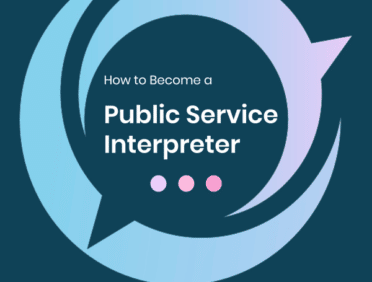Interpreters play a vital role in facilitating effective cross-cultural communication in our increasingly globalised world. Their ability to accurately convey meaning and bridge language barriers is essential in various settings, from conferences and healthcare to legal proceedings.
To become a skilled interpreter, comprehensive training methods and strategies are necessary. This article aims to explore different approaches that can help individuals develop the necessary skills and proficiency to excel in the interpreting profession.
Interpreting is a challenging yet rewarding profession that demands exceptional language skills, cultural competence, and adaptability. As an interpreter, you become the crucial link between individuals who speak different languages, ensuring that messages are accurately and impartially conveyed.
In the United Kingdom, where linguistic diversity is prominent, the demand for skilled interpreters is high across a range of sectors, including healthcare, government, legal, and business. By equipping yourself with the right training methods and techniques, you can embark on a journey to become a highly skilled interpreter capable of meeting the unique demands of the UK context.
Understanding the Interpreter’s Role and Responsibilities
As a skilled interpreter, you are entrusted with the responsibility of enabling smooth communication between individuals who speak different languages. Your role goes beyond mere language translation; it involves cultural sensitivity, impartiality, and adherence to ethical guidelines.
To succeed in this profession, you must navigate the nuances of cross-cultural communication, ensuring that messages are accurately conveyed while respecting cultural differences.
Interpreters in the UK encounter diverse cultural backgrounds, reflecting the multicultural society in which they operate. This requires a deep understanding and appreciation of the cultural context in which communication takes place.
As an interpreter, it is important to approach each assignment with cultural competence, recognising and respecting the customs, beliefs, and communication styles of different communities.
By embracing cultural sensitivity, you can foster an environment of trust and inclusivity, facilitating effective communication between parties.
To succeed in this profession, you should:
- Understand the context and expectations of interpreting in different settings, such as healthcare, social services, welfare, local government, and legal proceedings.
- Cultivate cultural competence to navigate diverse cultural backgrounds and address potential cultural barriers.
- Maintain professionalism by upholding ethical principles, including confidentiality and impartiality.
Assessing Language Proficiency and Building Language Skills
Assessing Language Proficiency and Building Language Skills in the context of interpreting is crucial for becoming a skilled interpreter.
Language proficiency is at the core of interpreting. As an interpreter, you must have a strong command of both the source language (the language spoken by the Service Provider- almost always English) and the target language (the language into which you are interpreting and spoken by the Service User). Assessing your language proficiency allows you to gauge your abilities and identify areas that require improvement.
There are various methods for assessing language proficiency. Standardised tests, such as the International English Language Testing System (IELTS) or the Teach English as a Foreign Language (TEFL), can provide an objective measure of your language skills. These tests evaluate your reading, writing, listening, and speaking abilities. Additionally, you can find self-assessment questionnaires online that help you assess your proficiency level in specific languages.
Once you have assessed your language proficiency, provided it is at a suitable level for the interpreting assignments that you wish to work on, you can focus on building and refining your language skills. Building vocabulary is essential for interpreters, as it enables you to accurately convey meaning across languages. Reading extensively in both source and target languages exposes you to a wide range of vocabulary and idiomatic expressions. Make use of newspapers, books, online articles, and other resources relevant to your interpreting field to expand your vocabulary.
Grammar is another critical aspect of language proficiency. Reviewing grammar rules and practicing grammar exercises can help you develop a solid foundation. Online language courses, textbooks, and language exchange programs provide opportunities to practice grammar in context and receive feedback on your language usage.
Improving your listening and speaking skills is also crucial for interpreting. Engage in activities that enhance your listening comprehension, such as watching movies, TV shows, or TED Talks in BOTH languages. Focus on understanding different accents and speech patterns, as they may vary depending on the region or culture.
To refine your speaking skills, practice speaking in both the source and target languages. Engage in conversations with native speakers, join language conversation groups, or take part in language immersion programs. These experiences enable you to improve your pronunciation, fluency, and ability to express yourself clearly and concisely.
Additionally, working with a language tutor or attending language classes can provide structured guidance and feedback on your language skills. A tutor can help identify areas for improvement and tailor exercises to address specific language challenges you may encounter during interpreting.
Incorporating technology into your language learning can also be beneficial. Language learning apps, online language platforms, and pronunciation tools can supplement your training and provide interactive ways to practice and improve your language skills.
By continuously assessing your language proficiency and dedicating time to build and refine your language skills, you can ensure that you are well-equipped to handle the challenges and demands of the interpreting profession. Language proficiency forms the foundation upon which you can develop your interpreting techniques and effectively convey meaning between languages.
Consider the following:
- Determine your current language proficiency level through assessment tools like language proficiency tests or self-assessment questionnaires.
- Engage in targeted language training to improve vocabulary, grammar, and fluency.
- Embrace language immersion experiences, such as language exchange programmes or spending quality time in a country where the target language is spoken, to enhance linguistic competence.
Mastering interpreting Techniques
Mastering interpreting techniques is essential for becoming a skilled interpreter. As an interpreter, you need to be proficient in different modes of interpreting, including consecutive interpreting, simultaneous interpreting, and sight translation.
Consecutive interpreting
Consecutive interpreting involves listening to a segment of the speaker’s speech, taking notes, and then interpreting during pauses. To excel in consecutive interpreting, active listening skills are crucial. Train yourself to listen attentively, understand the speaker’s message, and capture key points in your notes.
Practice consecutive interpreting with various materials, such as speeches, TED Talks, or recorded conversations. Start with shorter segments and gradually increase the length and complexity of the speeches. This helps improve your note-taking skills, memory retention, and interpreting accurately.
Simultaneous interpreting
Simultaneous interpreting requires the interpreter to listen and speak simultaneously while maintaining the flow of communication. This mode is commonly used in conferences, large events, or meetings with international participants. Developing quick reflexes, split-second decision-making abilities, a powerful memory and a strong command of both languages are essential for successful simultaneous interpreting.
Practice simultaneous interpreting using speeches or recordings. Start with shorter segments and gradually work towards real-time interpreting. Utilise interpreting booths or online platforms that simulate simultaneous interpreting environments. This helps enhance your ability to think and speak on the spot, maintain accuracy, and keep pace with the speaker.
Sight Translation
Sight translation involves reading a written text in one language and interpreting it into another language. It is often used in legal or medical contexts where documents need to be quickly understood. To master sight translation, develop techniques for reading and comprehending the text efficiently.
Focus on maintaining accuracy, fluency, and appropriate pacing while translating orally. Engage in sight translation exercises using materials relevant to your field of specialisation. This helps sharpen your linguistic skills, become familiar with specialised terminology, and deliver a precise and coherent interpretation.
Developing Subject Matter Expertise
Developing subject matter expertise is a critical aspect of becoming a skilled interpreter. As an interpreter, you will encounter a wide range of topics and industries that require in-depth knowledge and understanding. Here are some key considerations for developing subject matter expertise:
Identify Your Areas of Interest and Specialisation
Start by identifying the subject areas that interest you the most. Reflect on your strengths, experiences, and passions. By focusing on subjects that genuinely engage you, you will be motivated to delve deeper into the relevant terminology, concepts, and industry trends.
Conduct Extensive Research
Once you have identified your areas of interest, embark on a journey of continuous learning and research. Read books, scholarly articles, industry publications, and reliable online resources related to the subjects you wish to specialse in. Stay updated with the latest developments and advancements in those fields. This will enable you to grasp complex concepts, familiarise yourself with technical vocabulary, and understand the nuances of the subject matter.
Attend Industry-Specific Events and Conferences
Engage with professionals and experts in the field by attending industry-specific events, conferences, seminars, and workshops. These gatherings provide an excellent opportunity to network, gain insights from subject matter experts, and stay informed about the current trends and challenges within the industry. By actively participating in such events, you can deepen your knowledge, broaden your perspective, and establish connections that may prove valuable in your interpreting career.
Seek Out Mentorship and Guidance
Identify mentors or experienced professionals who specialise in the subject areas you are interested in. Reach out to them for guidance, advice, and mentorship. Their expertise and insights can provide valuable direction and help you navigate the intricacies of the subject matter. Their feedback and support will be instrumental in your journey toward becoming a subject matter expert yourself.
Collaborate with Professionals in the Field
Engage in collaborative projects or assignments with professionals working in the industries you wish to specialise in. This hands-on experience will expose you to real-world scenarios, terminology usage, and industry-specific challenges. Working alongside subject matter experts will further develop your understanding of the subject matter and enhance your ability to accurately interpret and convey complex information.
Stay Abreast of Industry Developments
The world is constantly evolving, and industries are continuously evolving with new trends, technologies, and research. Stay proactive in staying updated with the latest developments in your chosen subject areas. Subscribe to industry newsletters, follow relevant social media accounts, and join online communities or forums where professionals in the field share information and insights.
Remember that developing subject matter expertise is an ongoing process. It requires dedication, continuous learning, and a genuine passion for the topics you wish to specialise in. By investing time and effort into developing your knowledge and understanding of specific subjects, you will enhance your interpreting skills, gain credibility among clients, and be better equipped to provide accurate and nuanced interpretations in your chosen fields of expertise.
Consider the following steps:
- Identify your areas of interest and specialisation, such as legal, medical, technical, or business interpreting.
- Conduct in-depth research to understand the terminology, concepts, and industry-specific jargon related to your chosen field.
- Read reliable websites that are kept up-to-date, academic papers, industry publications, and attend workshops or seminars to stay updated on developments within your field of specialisation.
Cultural Competence and Interpreting in Diverse Contexts
Cultural competence is a crucial aspect of interpreting, especially in diverse contexts where individuals from different cultural backgrounds interact. To become a skilled interpreter in such environments, consider the following key points:
Understanding Cultural Differences
Cultivate a deep understanding of the cultures and communities you will encounter as an interpreter. Familiarise yourself with their customs, traditions, beliefs, and values. This knowledge will enable you to navigate cultural nuances and ensure effective communication between parties.
Sensitivity and Respect
Approach each interpreting assignment with sensitivity and respect for cultural differences. Recognise that individuals may have diverse perspectives, communication styles, and non-verbal cues influenced by their cultural backgrounds. Be mindful of potential biases or stereotypes that may unconsciously impact your interpreting, and strive for impartiality and neutrality.
Language and Cultural Context
Interpreters must possess not only language proficiency but also a strong grasp of the cultural context in which communication takes place. Language is deeply intertwined with culture, and understanding cultural references, idiomatic expressions, and contextual cues is essential for accurate interpreting. Continuously expand your cultural knowledge through reading, research, and interactions with individuals from different cultural backgrounds.
Adaptability and Flexibility
As an interpreter, you will encounter diverse cultural contexts and settings. Adaptability and flexibility are key to successfully navigating these environments. Be open to adjusting your interpreting style, tone, and approach to effectively mirror the participants. Adapting to different communication styles and preferences also fosters effective understanding and engagement.
Active Listening and Observing
Actively listen to both verbal and non-verbal cues to understand the underlying messages being conveyed. Pay attention to facial expressions, body language, and tone of voice, as they can provide valuable insights into cultural nuances and emotions. Cultivate the ability to interpret not only the words spoken but also the cultural subtext and implications.
Seek Cultural Consultation
In complex or unfamiliar cultural contexts, consider seeking guidance from cultural consultants or individuals with expertise in the specific culture or community. They can provide insights, answer questions, and help you navigate cultural sensitivities that may arise during interpreting. Collaborating with cultural experts can enhance your cultural competence and ensure accurate and culturally appropriate communication.
Reflect on Personal Biases and Assumptions
Interpreters must continually reflect on their own biases, assumptions, and cultural conditioning. Recognise that your own cultural background may influence your interpreting. Engage in self-reflection and actively work to minimise the impact of personal biases on your role as an interpreter.
Cultural competence is an ongoing process that requires continuous learning, self-awareness, and a commitment to understanding and respecting diverse cultures. By developing cultural competence, you can effectively bridge cultural gaps, foster understanding, and ensure accurate interpreting in diverse and multicultural contexts.
Consider the following:
- Familiarise yourself with the customs, traditions, and non-verbal communication cues of the cultures you will encounter during interpreting.
- Develop cross-cultural sensitivity by engaging with individuals from diverse cultural backgrounds and seeking opportunities to learn about different customs and beliefs.
- Adapt your interpreting style to suit the cultural context while maintaining impartiality and neutrality.
Enhancing Listening and Analytical Skills
Enhancing listening and analytical skills is crucial for becoming a skilled interpreter. Interpreters must possess exceptional listening abilities to accurately capture and comprehend the speaker’s message. They need to analyse and process information quickly, identify key points, and extract meaning from complex content.
By honing your listening skills, interpreters can improve their ability to follow the speaker’s thought process, discern nuances, and maintain focus throughout the session. Additionally, developing strong analytical skills enables interpreters to quickly assess context, identify cultural references, and adapt their interpreting accordingly. By continuously working on these skills, interpreters can provide accurate and meaningful interpreting that bridges language barriers effectively.
Here are some strategies to improve these skills:
- Practise active listening by engaging in conversation with ‘native’ speakers, watching movies or TV shows, and listening to podcasts or radio programmes.
- Enhance your analytical skills by actively analysing and summarising complex information from various sources.
- Participate in exercises or courses that focus on critical thinking and problem-solving to develop your analytical abilities.
Practical Training and Real-Life Simulations
Practical training and real-life simulations are integral components of becoming a skilled interpreter. They provide invaluable opportunities to apply theoretical knowledge, refine interpreting techniques, and develop the necessary skills to handle real-world interpreting scenarios. Here’s how practical training and real-life simulations contribute to interpreter development:
Role-Playing Exercises
Role-playing exercises simulate real-life interpreting scenarios and allow interpreters to practice their skills in a controlled environment. These exercises can involve mock public service conversations, conference settings, business meetings, legal proceedings, medical consultations, or community interactions. By assuming the roles of speakers, interpreters, and participants, interpreters can hone their interpreting techniques, language proficiency, and cultural sensitivity.
Shadowing Experienced Interpreters
Shadowing experienced interpreters offers a unique learning opportunity for novice interpreters. By observing professionals in action, interpreters can witness firsthand the strategies, techniques, and best practices used in the field. Shadowing allows interpreters to observe various interpreting modes, such as consecutive and simultaneous interpreting, and learn how to handle challenging situations in real time.
Volunteering in Community Settings
Volunteering in community settings that require language support, such as refugee centers, schools, or nonprofits, offers interpreters the opportunity to apply their skills in real-life situations. Interpreting in these contexts exposes interpreters to diverse populations, cultural dynamics, and specialised terminology. It enhances their adaptability, cross-cultural communication skills, and ability to work with individuals from different backgrounds. Please note; due to the risks involved, you should not offer interpreting services without undergoing formal training or preferably achieving an interpreting qualification at Level 2 or above.
Simulated / Mock Examinations
Simulated examinations simulate real interpreting certification exams, providing interpreters with an authentic testing experience. These exams assess their proficiency, accuracy, and ability to handle challenging interpreting tasks. By participating in simulated examinations, interpreters gain insight into the testing process, identify areas for improvement, and become familiar with the expectations and requirements of professional certification.
Continuous Feedback and Evaluation
Regular feedback and evaluation are vital for interpreter development. Trainers, mentors, or experienced interpreters can provide constructive feedback on language usage, interpreting techniques, and cultural sensitivity. This feedback helps interpreters identify strengths and weaknesses and guides them in their ongoing improvement process.
Reflective Practice
Reflective practice involves self-assessment and critical analysis of interpreting performance. Interpreters can record their practice sessions or real-life assignments and review them later to evaluate their performance. Reflecting on their strengths, areas for improvement, and the effectiveness of their interpreting choices allows interpreters to enhance their skills, identify recurring challenges, and make adjustments for future assignments.
Practical training and real-life simulations offer interpreters the opportunity to bridge the gap between theory and practice. By engaging in these activities, interpreters can build confidence, refine their interpreting techniques, and develop the skills necessary to excel in professional interpreting settings.
Consider the following steps:
- Seek out opportunities for practical training through volunteering (if you have suitable training and/or qualifications) or shadowing experienced interpreters.
- Participate in mock interpreting exercises and role-play scenarios to simulate real-life interpreting situations.
- Request feedback from mentors or experienced interpreters to identify areas for improvement and refine your skills.
Technology and Tools for Interpreters
Technology and tools play a significant role in supporting interpreters and enhancing their efficiency and accuracy.
Here are some key technologies and tools that can benefit interpreters in their work:
Interpreting Platforms and Software
Interpreting platforms and software enable remote interpreting, facilitating communication between parties located in different geographical locations. These platforms often include features such as video conferencing, document sharing, and real-time interpreting capabilities. Examples of popular interpreting platforms include Interprefy, KUDO, and Boostlingo.
Speech Recognition Software
Speech recognition software converts spoken language into written text, which can be particularly helpful for consecutive interpreters. Using speech recognition tools like Dragon NaturallySpeaking or Google Docs Voice Typing can save time and improve accuracy when creating notes and logging Continual Professional Development (CPD) during practice sessions.
Terminology Management Systems
Terminology management systems allow interpreters to create and maintain glossaries and terminology databases specific to their field of expertise. Tools like Acrolinx help interpreters build accurate and consistent terminology during their interpreting sessions.
Mobile Apps
Mobile apps offer convenience and portability for interpreters on the go. There are language-specific dictionaries, phrasebooks, and translation apps available that can provide quick access to language resources and support in various languages. Examples include Google Translate, Linguee, and iTranslate.
Digital Recording Devices
Digital recording devices or smartphone apps with voice recording capabilities can be valuable tools for interpreters. They allow you to record and review practice sessions, improving accuracy, and providing an opportunity for self-assessment and continuous improvement. Please note that due to the confidential nature of most interpreting assignments, you should not attempt to record actual assignments
Online Language Resources
Online resources such as language dictionaries, glossaries, and corpora can be useful for interpreters. Websites like WordReference, Linguee, and ProZ.com offer comprehensive language references and resources that can aid in finding accurate translations, understanding specific terms, and clarifying ambiguous language.
Collaboration and File-Sharing Tools
Collaborative platforms like Google Drive, Dropbox, or Microsoft OneDrive enable interpreters to share and collaborate on documents, presentations, or glossaries with clients, colleagues, or subject matter experts. These tools help to streamline the workflow.
It’s important for interpreters to carefully select and familiarise themselves with the technology and tools they choose to incorporate into their workflow. It’s recommended to undergo proper training and keep up-to-date with the latest advancements in interpreting technology to maximise their benefits and ensure their effective use in professional interpreting settings.
Consider the following;
- Explore interpreting software, apps, and online platforms designed for practise and skill enhancement.
- Utilise video conferencing tools to participate in virtual interpreting sessions or practise with colleagues.
- Leverage online glossaries, terminology databases, and resources to expand your knowledge and improve accuracy.
Continuous Professional Development (CPD) and Networking
CPD and networking are vital for interpreters to stay current, expand their knowledge, and enhance their professional skills. Interpreting is a dynamic field that constantly evolves, requiring interpreters to stay updated with industry trends, new technologies, and best practices.
Engaging in professional development activities such as attending workshops, conferences, and training programs allows interpreters to acquire new knowledge, learn from experts, and refine their skills. Additionally, networking with fellow interpreters, language service providers, and industry professionals fosters valuable connections, opportunities for collaboration, and access to a supportive community.
By actively pursuing CPD and networking, interpreters can grow both personally and professionally, ensuring their competence and success in the ever-changing field of interpreting.
To stay at the forefront of the interpreting profession and foster personal growth, prioritise continuous professional development and networking:
- Attend workshops, conferences, and seminars relevant to your field of specialisation.
- Pursue advanced training programmes or certifications to expand your expertise.
- Join professional interpreter associations, online forums, or social media groups to connect with colleagues and share knowledge.
Overcoming Challenges and Building Resilience
Interpreting can present various challenges, both linguistically and emotionally. Build resilience and overcome obstacles by:
- Developing self-care practises to manage stress and maintain overall well-being
- Seeking support and guidance from mentors, colleagues, or professional associations
- Cultivating a growth mindset, embracing challenges as learning opportunities, and persisting through setbacks.
Becoming a skilled interpreter requires a combination of language proficiency, cultural competence, and a range of interpreting techniques. By following targeted training methods, continuously developing your skills, and embracing technological advancements, you can enhance your abilities as an interpreter.
Remember, the journey to becoming a skilled interpreter is a lifelong commitment to learning, self-improvement, and making a positive impact through effective communication.
Undergoing Formal Training
One of the best ways to cultivate your interpreting skills, and make yourself eligible for interpreting work, is by undertaking formal qualifications such as the ones offered by Learn Q. These qualifications help you to understand the responsibilities of interpreters, the skills and knowledge you need to succeed and guide you in building the vocabulary you will need to work in professional settings.
If you are new to interpreting, you are advised to start with the Level 3 Certificate in Community Interpreting which is the entry level for paid interpreters and opens up opportunities o work with public services including medical, welfare, social services and local government.
If you already have a Level 3 Certificate in Community Interpreting, have 2 or more years’ professional interpreting experience and are looking to advance your career into new areas including legal work, the Level 6 Diploma in Public Service Interpreting (DPSI) is ideal.












